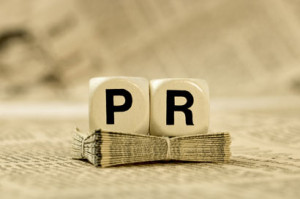 You’ve started a new business or your existing business needs help growing to the next level.
You’ve started a new business or your existing business needs help growing to the next level.
You talk to your peers and trusted advisers and everyone recommends you hire a PR firm.
But what does that mean? How to choose a PR firm for your business?
Typically, business leaders hear “PR” and they instantly think about seeing their name in lights. After all, if celebrities, sports figures, and politicians can become famous seemingly overnight through the media, why wouldn’t it work for you?
Publicity vs. PR
It can work for you, but there is a difference between that – which is really publicity – and PR.
Publicity or earned media or media relations is all about getting your organization covered in the news. It’s great for the ego, it’s great for building awareness, and it’s great for credibility. It’s not great, however, for making the phone ring or for increasing sales.
When combined with PR, it can be a very powerful tool in both building your organization’s reputation and growing your sales.
So what is it, then, a PR firm should do?
In today’s digital age, a PR firm should begin to look a bit like their marketing peers. Not only should they be focused on media and blogger relations, crisis and issues management, event production, and strategy, they also should be doing content (blogs, white papers, ebooks, webinars), email marketing, social media, and more.
They should have a process in place that helps you generate leads and nurture those leads until they’re ready to buy. They should be working hand-in-hand with your sales team (or with you, if you don’t have sales yet) to grow the top line. They should be able to measure their efforts to real business goals. In other words, if they can’t tell you how they’ll help you grow your sales, they’ll be focused instead on increased Facebook fans, lots of stories, and increased Twitter followers.
While those things are important in brand building, they don’t mean a thing if those people don’t buy.
How to Choose a PR Firm
When you’re working through how to choose a PR firm, ask the following questions:
- Do they have experience in your industry? It used to be more important the PR firm have industry experience, but it’s less so today because the web provides so much information to get smart quickly. Even so, if they have industry experience, the learning curve won’t be as steep.
- Can they give you case studies? The case studies could be proprietary (we have three clients who won’t allow us to post their case studies on our site), but they should have them and they should detail the results they achieved for the client.
- Are they willing to share references? Even for the clients they no longer work with. It’s important for you to have a full understanding of their strengths and weaknesses before hiring them. Every organization has its faults. Is the PR firm willing to let someone else tell you what theirs are?
- Do they understand how you make money? If they do, it’s more likely they can help you achieve your business goals.
- Do they do more than media relations? If not, you’re hiring a publicist, not a PR firm. That is fine, if that’s what you want. But if you want more than stories in your newspaper or business journal, look for a firm that recommends an integrated program.
- Will they work with other firms? In some cases, you may also hire an advertising agency or a specialized firm, such as social media or web design and development. Can they play nicely in the sandbox with those firms?
- Can they show you real results for other clients? We have a client that, in 2011, we generated $2.6 million on a $90,000 annual budget. Last year we generated $3.2 million on the same budget (we got a raise this year). Can they demonstrate that kind of value?
- Are they willing to put some skin in the game? I’m not saying they should work solely on commission or performance; most firms can’t afford to do that and still keep the lights on. But are they willing to set a low retainer for a piece of the revenue they help you generate?
- Do they pay attention to metrics and data? These are the things that help you make informed and educated decisions about the work you do through a PR program. Ask them to show you what kinds of metrics and data they use to help them tweak their programs as they progress.
There are probably a zillion other things you can ask, but this a good list to get you started. The other thing that is important is chemistry. No matter how smart they are or the great results they get, if you don’t like them, you won’t be working with them in six months.
The mantra “hire slowly and fire fast” rings true when hiring a PR firm. Ask the right questions, get lots of information, and make a decision based partly on gut and partly on their past results.
A version of this first appeared in my weekly AllBusiness column.